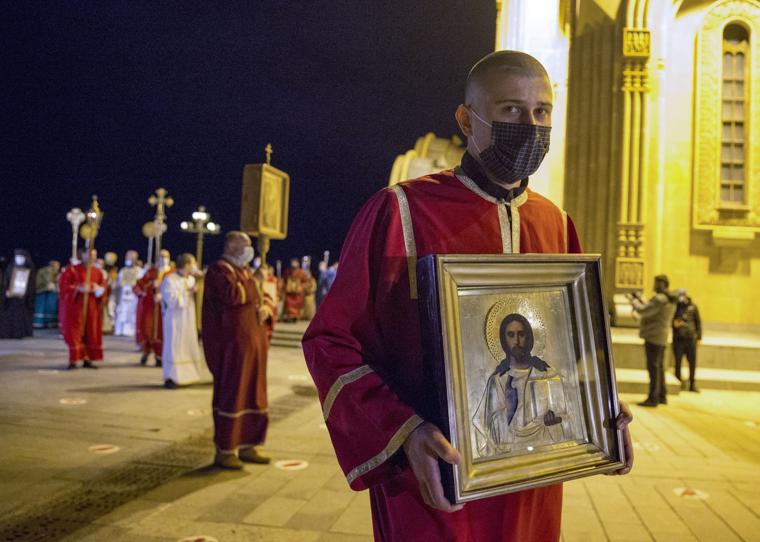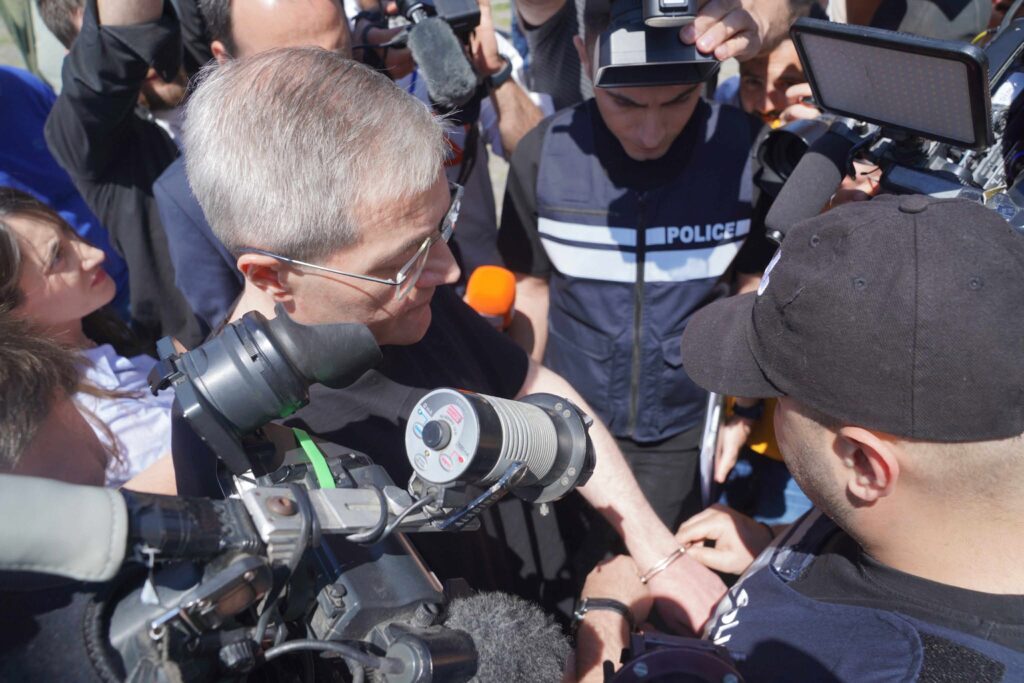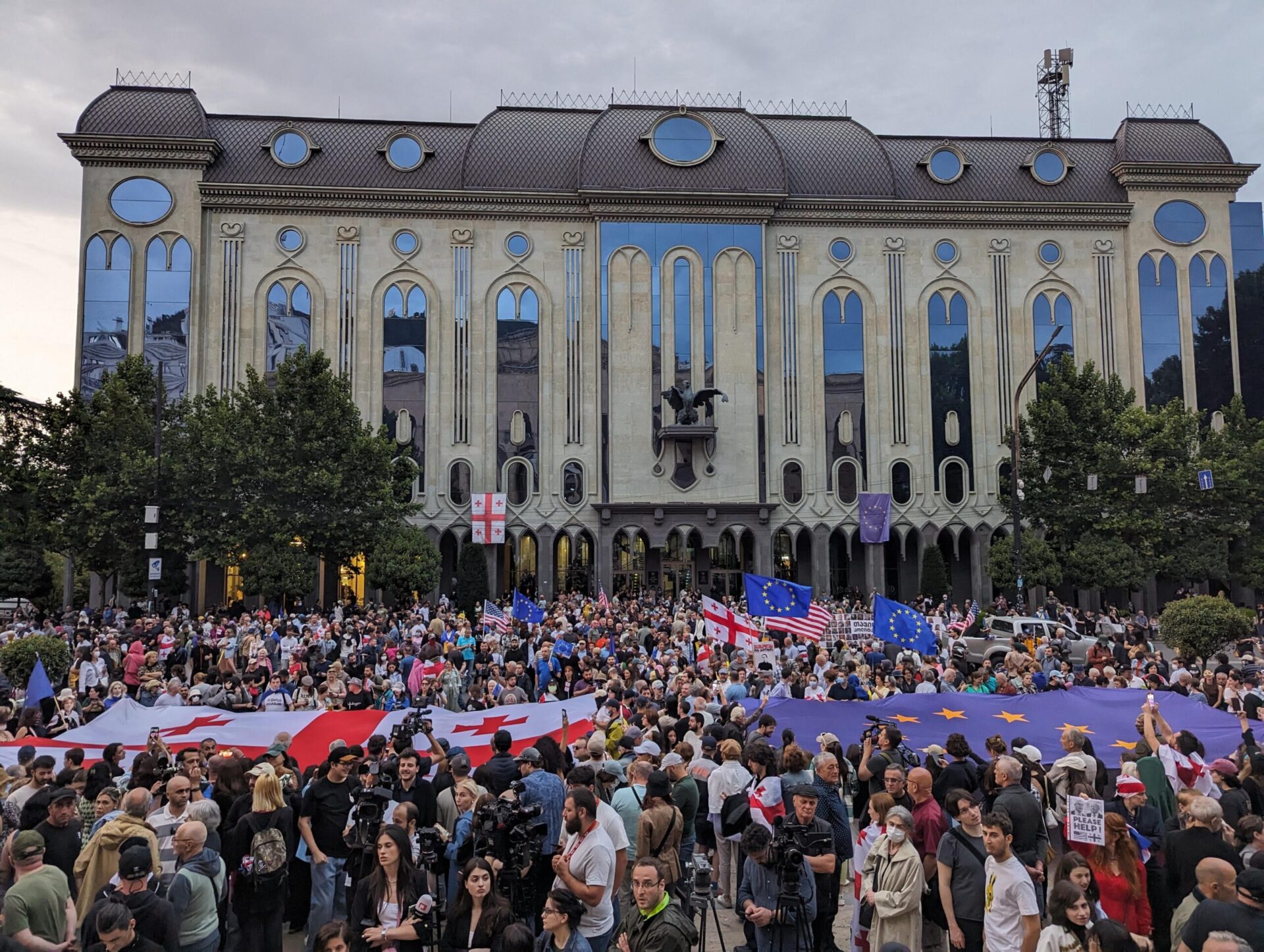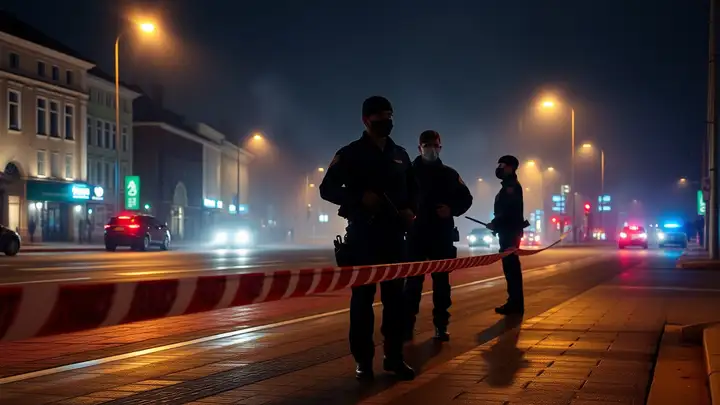
Restrictive Anti-Pandemic Measures Reveal Confrontation Between Georgian Government and Orthodox Church
Restrictive Anti-Pandemic Measures Reveal Confrontation Between Georgian Government and Orthodox Church
On April 19, Georgians celebrated Orthodox Easter. But this year, the date highlighted a confrontation between the national authorities and the governing institution of the Orthodox Church of Georgia (the Patriarchate). As worshippers flocked to attend Easter vigils, virologists expressed concern that the holiday might turn out to be a dramatic turning point in the government’s efforts to limit the deadly outbreak of COVID-19.
Due to the quickly spreading coronavirus pandemic, a state of emergency has been in effect in Georgia since March 21. However, the Georgian Orthodox Church all along refused to acquiesce to the emergency orders forbidding public congregations of more than three people (Matsne.gov.ge, March 23) and the curfew, in effect between 9:00 P.M. and 6:00 A.M. (1tv.ge, March 23). Instead, priests urged believers to come to church to celebrate Easter. As a result, Orthodox Patriarch Ilia II and Prime Minister Giorgi Gakharia sat down, on April 13, to try negotiate a way for the Georgian faithful to still be able to celebrate the holiday without breaking the law (Civil.ge, April 14).
The compromise consisted of parishioners being allowed to fill the churches on April 19, until 9:00 P.M., and then stay inside and pray until the end of the nightly curfew, at 6:00 A.M. Relatively few Georgians actually came out to attend church, thus generally allowing those who did to safely practice legally proscribed social distancing inside larger places of worship (Agenda.ge, April 20). And for the first time in the country’s history, its political leaders chose not to celebrate Easter mass at the main cathedral in Tbilisi.
The ruling Georgian Dream government has repeatedly shown deference toward the Church. And in recent weeks, despite urging citizens not to celebrate Easter at religious sites this year and to stay in their homes, the state authorities notably refused to close churches. The government only tried to indirectly restrict the Church’s freedom of action during the Easter holiday. For example, public servants were warned that if they attended Easter celebration, they could lose their jobs (Interpressnews.ge, April 17). Additionally, the government forbade the movement of cars throughout the country from April 17 to April 21. But the Patriarchate immediately protested this decision, declaring that “these bans were not agreed with us” (Facebook.com, April 17). Moreover, one of the country’s most influential Orthodox clergymen, the metropolitan of Bodbe, Archbishop Jacob, exclaimed, “I do not threaten, but who dares to stand against me on the street?” (Interpressnews.ge, April 17). Consequently, the authorities backed down and made another concession: the automobile bans would not affect the clergy.
Archbishop Jacob, meanwhile, entered into a direct confrontation not only with the authorities but also with doctors, who categorically warned against citizens attending church services during the Easter weekend. Namely, the metropolitan demanded that the director of the National Center for Disease Control and Public Health as well as his deputy apologize for their coronavirus-related recommendations (1tv.ge, April 17).
Such interference by the Church in public affairs skirts legal boundaries, as the Georgian constitution quite clearly defines the separation of religion from the state. And yet, the relationship between the Patriarchate and the Georgian authorities has a long and peculiar history: sometimes they acted as allies, and other times as rivals. Multiple crises arose under both the current and former ruling factions. In each case, however, the root of the disagreement had to do with a fight for influence and power.
The Orthodox Church is one of the most powerful institutions in Georgia and, as an organization, it is heavily funded by the state budget. But its role in society particularly increases during election campaigns due to the Church’s strong sway over the population. According to the Pew Research Center, Georgia is the most religious country in Europe (Pewforum.org, October 24, 2018). More than 80 percent of Georgians identify with the Georgian Orthodox Church, under the leadership of Patriarch Ilia II. And as revealed in polling conducted by the International Republican Institute (IRI), the Georgian Church, as a social institution, enjoys the greatest confidence among the population, surpassing such political institutions as the president, parliament or political parties (Iri.org, November 18, 2019).
Accordingly, both the government and most political actors and parties in the country have regularly sought to attract support from the clergy (see EDM, April 15, 2013). Indeed, the current ruling party, Georgian Dream (GD), came to power in the 2012 parliamentary elections with the active backing of the Church (see EDM, March 14, 2013). During the 2018 presidential election, then–GD endorsed candidate Salome Zurabishvili provoked a conflict with Church leaders by declaring that, if elected, she would prohibit the clergy from interfering in politics (Imedinews.ge, September 19, 2018). Thanks to the campaign and “administrative resources” assistance from the ruling party, she still eked out a victory at the polls (see EDM, October 31, 2018 and December 3, 2018). But soon thereafter, President Zurabishvili apparently set out to prove her loyalty to the Church. In particular, around the Easter holiday in April 2019, she joined provocative rallies, involving Georgian Orthodox clergy, at the Davit Gareja (Keshkichidag) monastery complex, which straddles the Georgian-Azerbaijani border (see EDM, May 14, 2019). Moreover, on June 1, 2019, holding a wooden cross and in prayer, Georgia’s head of state walked the route taken by Saint Nino in the fourth century, when the historical figure entered Georgia to Christianize the local population (Interpressnews.ge, June 1, 2019).
Georgia’s next parliamentary elections are scheduled for October 2020 (assuming the pandemic does not hinder the vote), and the support of the Church will again be vitally important for the ruling elite. Therefore, the situation that transpired this past week between the authorities and the Church, during the celebration of Orthodox Easter in a pandemic, could undermine the idea of a secular state and further chip away at the liberal-democratic orientation of the country.


